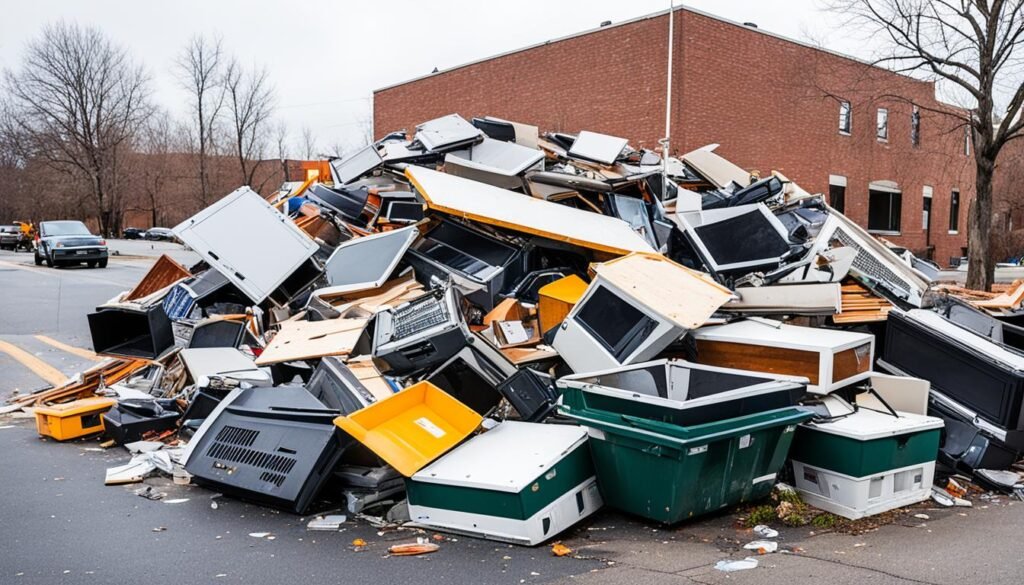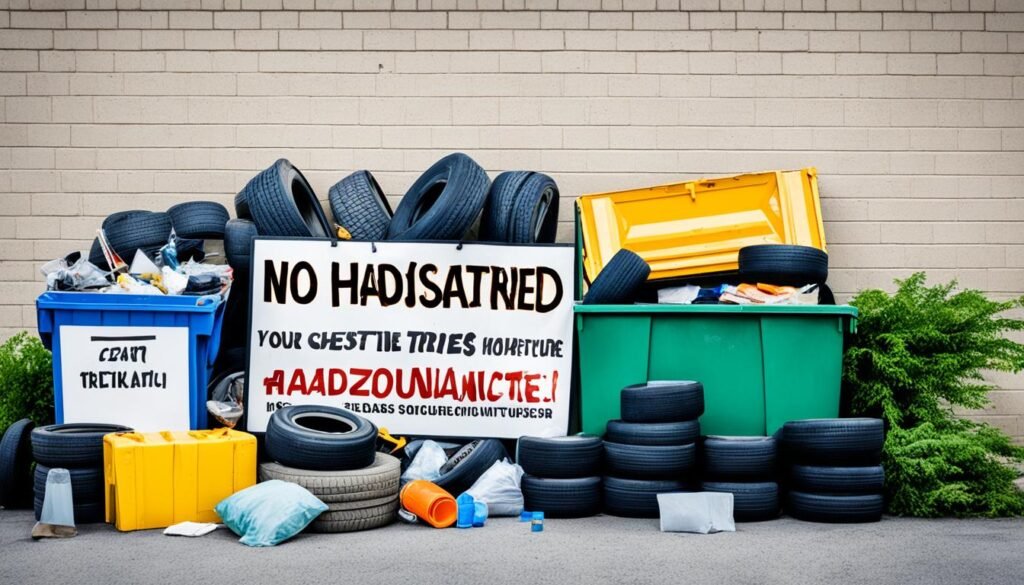Did you know that not throwing away trash correctly can harm our environment? Every year, the United States produces about 220 million tons of trash. Sadly, only 32% of this gets recycled or composted. The rest ends up in places it shouldn’t, causing pollution and harm to our world.
It’s important to know what items you can and can’t put in a rented dumpster. This knowledge helps us take care of our planet better. We will look into what is allowed and what is not. This ensures we are making the right choices for our earth.
Key Takeaways:
- Proper trash disposal is crucial for environmental protection and avoiding pollution.
- It’s necessary to know the do’s and don’ts when you rent a dumpster.
- The United States sees about 220 million tons of waste annually.
- Just around 32% of this waste is recycled or turned into compost.
- Not disposing of waste correctly can destroy habitats and pose health dangers.
What Can Go in a Dumpster
Several items can typically go into a dumpster. These include:
- Most household junk
- Construction debris
- Building materials
- Home improvement debris
- Aerosol cans
- Smaller appliances
- Electronics
- Certain types of furniture
Even though these items are usually accepted, specific restrictions might apply. There could be additional disposal guidelines in your area. It’s a good idea to check with your local waste management department or dumpster rental company for details.

What Can’t Go in a Dumpster
When throwing away materials, it’s important to know what shouldn’t go in a dumpster. These rules protect our health and the planet. Following them helps with responsible waste management.
Below is a list of items that are commonly not allowed in dumpsters:
- Adhesives
- Car batteries
- Fluorescent lightbulbs
- Food waste
- Hot water tanks
- Household cleaners
- Inks & resins
- Oils, fuels & propane tanks
- Paint and lacquers
- Railroad ties & telephone poles
- Hazardous waste
- Flammable or ignitable wastes
- Corrosive wastes
- Reactive wastes
- Toxic wastes
- Biohazardous or infectious wastes
These items can harm us and our planet if not thrown away right. It’s key to dispose of each item correctly. Contact local waste handlers or specialized places for advice.
Knowing what can’t go in a dumpster helps you protect the environment. It means you’re doing your bit.

Conclusion
Knowing what you can and cannot throw in a dumpster is key to disposing waste the right way. Make sure you follow the guidelines and know what’s allowed. This avoids problems or extra charges. Remember, rules may differ based on where you live. So, it’s smart to check with local waste handlers or the dumpster company about their rules.
By knowing what you should and shouldn’t dispose of, you help keep our environment clean and safe. Proper disposal stops pollution, keeps people healthy, and saves our planet’s resources. Whether you’re renovating your home or working on a big project, knowing what’s allowed in a dumpster is crucial. By sticking to these rules, you have a big impact on your community and the Earth.
So, when it’s time to rent a dumpster, make sure you know the rules and guidelines. Understanding and following these can make your rental smooth and help you manage waste responsibly. Together, we can make a cleaner and greener future a reality.
